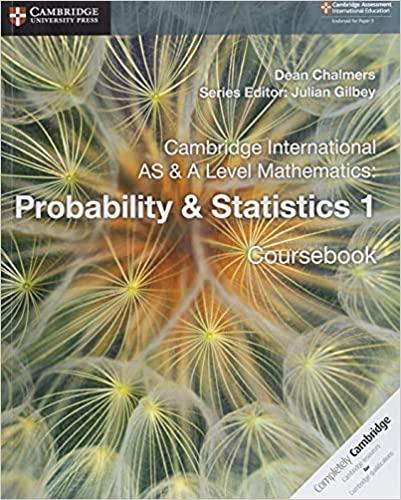Two ordinary fair dice are rolled. The product and the sum of the two numbers obtained are
Question:
Two ordinary fair dice are rolled. The product and the sum of the two numbers obtained are calculated.
The score awarded, S, is equal to the absolute (i.e. non-negative) difference between the product and the sum.
For example, if 5 and 3 are rolled, then S = (5 × 3) − (5 + 3) = 7.
a. State the value of S when 1 and 4 are rolled.
b. Draw up a table showing the probability distribution for the 14 possible values of S, and use it to calculate E(S).
Fantastic news! We've Found the answer you've been seeking!
Step by Step Answer:
Related Book For 

Cambridge International AS & A Level Mathematics Probability & Statistics 1 Coursebook
ISBN: 9781108407304
1st Edition
Authors: Dean Chalmers, Julian Gilbey
Question Posted:





